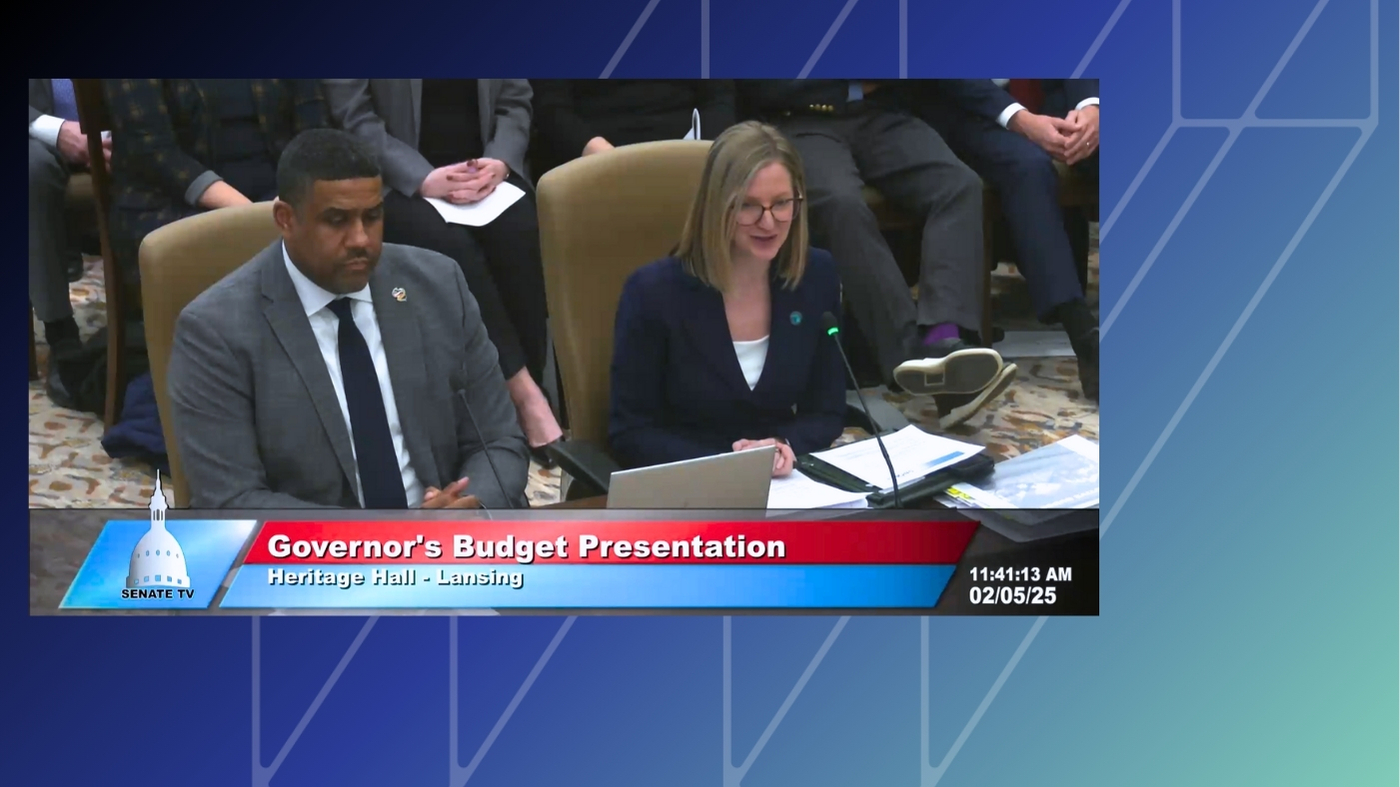
Lansing, Mich. — Earlier today, State Budget Director Jen Flood and Deputy State Budget Director Kyle Guerrant presented Gov. Gretchen Whitmer’s fiscal year 2026 budget proposal at a joint meeting of the House and Senate appropriations committees. This budget continues the governor’s commitment to improving educational and economic outcomes for all Michiganders, with historic investments in K-12 per-pupil funding, increased access to postsecondary opportunities and continued support for our public universities and community colleges.
Highlights from the budget proposal include:
- K-12 Education — 4.1% increase in per-pupil funding to $10,000 per student, Michigan’s highest amount ever, for a total of $516 million.
- FAFSA Completion — ongoing $10 million annual appropriation for FAFSA completion efforts.
- Community College and Public Universities — $84.4 million in additional funding for a 4% ongoing increase in operational funding .
- Michigan Reconnect — $52 million in continued funding for Michigan Reconnect.
- Promise Zones — Increase of $8.8 million to ongoing funding, for a total of $43.3 million.
- $15.9 million to fully fund the Indian Tuition Waiver at community colleges and public universities.
- Additional ongoing $50 million in the Postsecondary Scholarship Fund, for a total annual investment of $350 million.
- Additional $28.5 million to support increased participation in the Tuition Incentive Program.
- Creation of a College Success Fund with $15 million in one-time funds and expanding eligibility for grants to include private colleges and universities, in addition to tribal and community colleges and public universities.
- $2.2 million to help students from low-income backgrounds pay for Advanced Placement, International Baccalaureate and College-Level Examination Program courses, lowering college costs by expanding alternative pathways to earn college credits.
- $125 million for Pathways to Success to expand career and technical education opportunities for students in schools — often in rural areas — that are considered “CTE deserts.”
- $750,000 to expand the availability of postsecondary education programs in prison, which helps to reduce recidivism and increase employment and wages among returning citizens.
- MCAN Appropriation — Continued appropriation of $4 million in support of MCAN’s college access and success work.
In addition to the budget items listed above, Gov. Whitmer called on the legislature to codify the Michigan Achievement Scholarship through legislation that establishes the definition, intent, eligibility and reporting of the scholarship.
Statement from MCAN Executive Director Ryan Fewins-Bliss:
“Michigan College Access Network fully supports the historic educational investments in Gov. Whitmer’s budget proposal,” said Ryan Fewins-Bliss, MCAN executive director. “To compete in the global economy, Michigan needs to build a flexible, well-educated workforce that is ready for the challenges of tomorrow. This budget demonstrates the governor’s commitment to our future by supporting increased college readiness, participation and completion. The investments outlined in this budget would strengthen our K-12 system, expand financial aid options and provide additional support for populations that are underrepresented in college — especially low-income individuals, those who would be first-generation college-going students and people of color. As the House and Senate prepare their own budget proposals, we encourage bipartisan cooperation to craft a final budget that invests in our residents’ success and provides improved economic opportunities for all Michiganders through college access and success.”
Fiscal year 2026 proposal includes increased investments in student success, postsecondary access